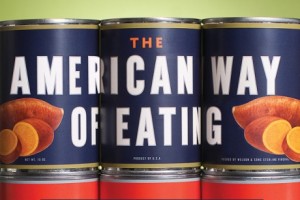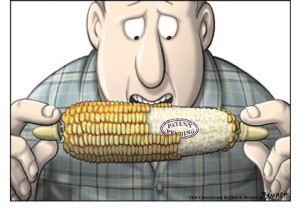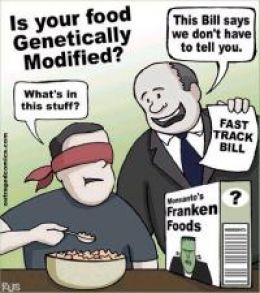 The hubbub over Chief Justice John Roberts deciding in favor of the Affordable Care Act—specifically, the way he found it constitutional on the basis of taxation rather than the power of the federal government to regulate commerce—got me thinking about our gardens and dinners. See, a shocking amount of American law that I think essential to an equitable society rests on the rather narrow Constitutional text “The Congress shall have the power to regulate commerce.” A significant aspect of the constitutionality of the Civil Rights Act of 1964, for instance, depended on the Court’s determination that the Commerce Clause gave the feds the power to regulate businesses that served mostly interstate travelers. Thus motels and restaurants across America could not discriminate against black Americans. Equality through Commerce. Crazy, right?
The hubbub over Chief Justice John Roberts deciding in favor of the Affordable Care Act—specifically, the way he found it constitutional on the basis of taxation rather than the power of the federal government to regulate commerce—got me thinking about our gardens and dinners. See, a shocking amount of American law that I think essential to an equitable society rests on the rather narrow Constitutional text “The Congress shall have the power to regulate commerce.” A significant aspect of the constitutionality of the Civil Rights Act of 1964, for instance, depended on the Court’s determination that the Commerce Clause gave the feds the power to regulate businesses that served mostly interstate travelers. Thus motels and restaurants across America could not discriminate against black Americans. Equality through Commerce. Crazy, right?
Okay, so what does this have to do with food? Well, the House is currently considering the next Agricultural Appropriations bill, which happens to contain a rider, known as “the Monsanto rider,” that has received, curiously, little to no coverage in the national press. This rider requires that the Secretary of Agriculture grant a farmer or industrial agri-giant a permit to plant genetically engineered crops (GMO), even if a federal court has ordered the planting halted for safety or environmental impact studies. You can read it here.
Monsanto, DuPont, etc., only have to ask, and every ruling by a federal court or enforcement of current consumer protection laws on the part of the White House or a federal regulatory agency is overridden and they can plant whatever crop they chose. Even state congresses become powerless: if they try to create local or state laws to protect eaters and farmers, they are in violation of federal law, a federal law that is written to override all other pertinent federal laws.
The Center for Food Safety said of the rider, “Ceding broad and unprecedented powers to industry, the rider poses a direct threat to the authority of U.S. courts, jettisons the U.S. Department of Agriculture’s (USDA) established oversight powers on key agriculture issues and puts the nation’s farmers and food supply at risk.”
And why does that matter, at least to issues of food, which is the purview of this fine blog you’re reading here? Shouldn’t Monsanto and DuPont have the right, in a free country, to plant whatever they want?
 Well, yes and no. On Monday, I wrote about the Plant Variety Protection Law that allows companies to own the DNA of the plants they develop. When those patented genes show up in plants that are owned by regular folks, those folks are then legally stealing from those industrial giants, even though all they did wrong was grow their own crops in a location where they could be pollinated with those proprietary genes. Your food, in other words, is not yours. This reading of the law has been held up in multiple court cases.
Well, yes and no. On Monday, I wrote about the Plant Variety Protection Law that allows companies to own the DNA of the plants they develop. When those patented genes show up in plants that are owned by regular folks, those folks are then legally stealing from those industrial giants, even though all they did wrong was grow their own crops in a location where they could be pollinated with those proprietary genes. Your food, in other words, is not yours. This reading of the law has been held up in multiple court cases.
And that takes us back to Chief Justice Roberts. Roberts has made it clear from the beginning that he intends to narrow Congress’ power to regulate commerce. He may have expanded the federal power to tax, but he intends to direct regulatory power back to the state level. If he is successful, this means that sneaking a bully of a rider into a larger piece of legislation will be unnecessary in the future because federal powers will have no legal right to challenge it in the first place.
It also means that we’d end up with a country that has different food regulations for each state and no central power that can ensure Americans their food is safe. We’ll end up with a situation where consumers in, say, Minnesota get food from producers in, say, Ohio and have no way to know if the tomato they’re eating is the real deal. The industrial Agri-giants currently spend tremendous amounts of money lobbying to keep GMO labels off of their products; they certainly aren’t going to change their mind once there is no federal power to keep them in check.
The food we eat builds our blood and brain cells and whole selves. This is Biology 101: If we are not allowed to know what we eat, we are no longer able to know our own bodies.
Because there are no well-funded interests pushing through Congress riders that protect the health or well-being of The People.
And five to six of the nine Supreme Court Justices seem to think that it should not be in Congress’—or their—power to do so.
(Special thanks to Tim Costello and Dimitrios Efstathiou for their legal analysis.)
